
Plenary and Invited Speakers
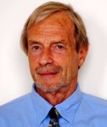
Andrew Bakun Rosenstiel School of Marine and Atmospheric Science, University of Miami, USA
Dr. Andrew Bakun is currently a Professor of Marine Ecosystem and Society in the Rosenstiel School of Marine and Atmospheric Science of the University of Miami (Florida, USA). Bakun has worked as a professional in marine scientific research for more than half a century within a variety of national, international agencies and private academic institutions, including the International Indian Ocean Expedition, the Food and Agriculture Organization of the United Nations, IRD (France), NOAA-NMFS (USA), the International Research Institute for Climate Prediction (Columbia University, USA), and the University of Miami (USA). He has served on numerous international and national scientific advisory panels (e.g., serving continuously as Chairman of the Scientific Guiding Group for the international IOC/FAO/SCOR Program of Ocean Science and Living Resources (OSLR,) of which SARP (the “Sardine-Anchovy Recruitment Project”) was a major component, throughout its entire duration, 1984-1994. He continued to be very active in the GLOBEC-SPACC (“Small Pelagics and Climate Change”) Project, which was the follow-on international scientific effort directed toward small pelagic fish dynamics following termination of the earlier SARP efforts. Bakun was the 2011 Awardee of the Great Medal of Albert 1, Prince of Monaco in recognition of his lifetime accomplishment within marine science. Areas of emphasis in his research career have included environmental and climatic effects on the population dynamics of exploited fish populations, the physical–ecological dynamics of coastal ocean upwelling ecosystems, and the potential marine ecosystem effects of anthropogenic climate change.
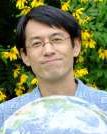
Shoshiro Minobe Hokkaido University, Japan
Dr. Shoshiro Minobe is a Professor at the Graduate School of Sciences, Hokkaido University, Japan. His research interests focus on decadal climate variability and air-sea interaction. Included in his publications is a widely-referenced article proposing 50-yr climate variability and an interpretation of climate regime shifts associated with 50-yr and 20-yr climate variability. His paper on the ocean-to-atmosphere influence over the Gulf Stream was featured as the cover article of the journal Nature in 2008. Shoshiro worked as a convenor for several PICES symposium and workshops for decadal climate variability and its relation to marine ecosystem, and as a guest editor of the Progress in Oceanography special issue on "North Pacific Climate Regime Shift" (2000). He also served as a member of the Implementation Plan Writing Team for the PICES scientific program, FUTURE. He is now working as a co-chair on a new working PICES WG27 "North Pacific Climate Variability and Change".
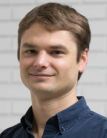
Ryan Rykaczewski Department of Biological Sciences, University of South Carolina, USA
Dr. Ryan Rykaczewski is an Assistant Professor in the Marine Science Program and the Department of Biological Sciences at the University of South Carolina, USA. He received his BS in Biology and Marine Science from the University of Miami and his PhD in Oceanography from the Scripps Institution of Oceanography. Ryan is a fisheries oceanographer with an interest in understanding the responses of marine ecosystems and fisheries production to changing ocean and climate properties, and his research investigates long-term changes in physical, biogeochemical, and planktonic characteristics that are evident in observational records and simulated by atmosphere-ocean general circulation models. The goal of this work is to improve understanding of the influence of regional and basin-scale processes on the composition and production of plankton and fish communities. He is a member of the CLIVAR Research Focus group on eastern boundary upwelling systems.

David Field Hawai’i Pacific University, USA
Dr. David Field is an Associate Professor of Marine Sciences at Hawaii Pacific University. He has been extensively involved in reconstructing past changes in climate and fish populations (from fish scales and bones) from laminated marine sediments off of California and Peru. Other work involves determining the influences of large scale and hydrographic factors on marine populations. Additional interests include decadal climate variability and distinguishing anthropogenic factors from natural variability.
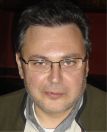
Stylianos (Stelios) Somarakis Hellenic Centre for Marine Research, Institute of Marine Biological Resources and Inland Waters, Greece
Dr. Stylianos (Stelios) Somarakis is a Research Director at the Institute of Marine Biological Resources and Inland Waters of the Hellenic Centre for Marine Research (HCMR), Crete, Greece. He was a Lecturer at the Biology Department of the University of Patras, Greece, from 2002 to 2006 and Assistant Professor at the Biology Department of the University of Crete in 2007. He is an expert on ichthyoplankton, egg production methods, larval fish ecology, fish reproduction and pelagic food webs, with long experience on small pelagic fish and fisheries. He was chairman (2005-2008) of the Working Group on small pelagics of the General Fisheries Council for the Mediterranean (GFCM/Scientific Advisory Committee). He is a member of the Scientific Technical and Economic Committee for Fisheries (STECF, European Commission) and moderator of the Sub-regional Committee for the Adriatic Sea (GFCM/SRC-AS). He serves on the Editorial Board of the journals Marine Ecology Progress Series, Scientia Marina and Mediterranean Marine Science.
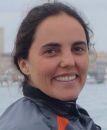
Sophie Bertrand Institut de Recherche pour le Développement, France
Dr. Sophie Bertrand is a research scientist at the French Research Institute for Development (IRD). She received her master and PhD in marine ecology and fisheries science from École Nationale Supérieure Agronomique de Rennes (France). Sophie is marine ecologist with a specific interest in the spatial behaviour of large marine organisms (fishers, seabirds, mammals, etc.) and in the demography of megafauna species, submitted to the influence of fluctuating environments. She has been working with international and interdisciplinary teams for >15 years in the Humboldt Current System (she lived 3 years in Chile and 6 years in Peru, working in partnership with local research institutions). Her research line consists in providing scientific basis to a management compromise between exploitation and conservation issues in marine ecosystems.

Reidar Toresen Institute of Marine Research, Norway
Dr. Reidar Toresen is research scientist at the Centre for Development Cooperation in Fisheries (CDCF) at the Institute of Marine Research (IMR), Bergen, Norway. In this position he leads research surveys on the R/V Dr Fridtjof Nansen, does advice in assessment processes and advice for management in developing countries. He also does research on recruitment mechanisms of Norwegian spring spawning herring. A stock which in the recent twelve years has suffered from recruitment failure. Previously, Toresen was research director at IMR (2007 – 2013), with special responsibility of the development of research strategies. In his research career, Toresen has especially concentrated his research on the long term fluctuations of Norwegian spring-spawning herring and he made a VPA for this stock covering the years 1907 to 1997. By applying long time series of fish stock data and oceanographic climate data, he has shown the strong relationships between fluctuations of ocean climate and fish stock dynamics and recruitment for this stock.
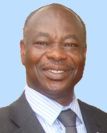
Kwame Koranteng EAF-Nansen Project, FAO
Dr. Kwame Koranteng is currently a Coordinator for the EAF- Nansen project at the Food and Agriculture Orgagization of the United Nations (http://www.fao.org/in-action/eaf-nansen/about/en). He has 37 years working experience in aquatic biodiversity assessment, management and conservation, extending scientific advice to local communities, governments and non-governmental organisations. Kwame has worked with various national and international agencies and organizations, serving as the Eastern Africa Regional Representative of the World Wide Fund for Nature, Director of the Marine Fisheries Research Division of Ghana, UNEP Task Manager for the Guinea Current Large Marine Ecosystem project, Chairman of IOC/UNESCO’s Global Ocean Observing System (GOOS) Coordinating Committee for Africa, member of GOOS Capacity Building and Living Marine Resources panels and Chairman of the FAO’s Advisory Committee on Fishery Research. He has managed research and development grants for multi-national, multi-institutional and multi-disciplinary collaborative research and published widely in international scientific journals.
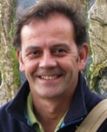
Manuel Barange Fisheries and Aquaculture Policy and Resources Division, FAO
Dr. Manuel Barange has recently been appointed Director of the FAO Fisheries and Aquaculture Policy and Resources Division in Rome, Italy. Previously he was Deputy Chief Executive and Director of Science of the Plymouth Marine Laboratory, UK (2010-2016). He is a past Chair of the ICES Science Committee (2010-2013) and past Director of the international GLOBEC programme (1999-2010). In recent years, he has increasingly focused his research on the impacts of climate change and economic globalization on marine-based commodities, and on the interactions between natural and social sciences in fisheries, ecosystems and climate change, in the developed and developing world. Manuel is an Honorary Professor at the College of Life and Environmental Sciences, University of Exeter, UK, and was awarded the 2010 UNESCO-IOC Roger Revelle Medal for his contributions to ocean science.
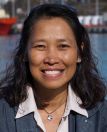
Ratana Chuenpagdee Memorial University, Canada
Dr. Ratana Chuenpagdee is a Professor at Department of Geography, Memorial University, St. John’s, Canada. She held Canada Research Chair position, from 2006 to 2016, on Natural Resource Sustainability and Community Development. Ratana studied in Thailand, US and UK, and received a PhD from University of British Columbia, Vancouver. Her research emphasizes interdisciplinary approaches to coastal, fisheries and ocean governance, focusing particularly on small-scale fisheries, marine protected areas, community-based management, and food security. She has worked in several countries including Cambodia, Malawi, Mexico, South Africa, Spain, Thailand and Canada. Ratana is currently leading a major global research partnership, Too Big To Ignore, which aims at elevating the profile of small-scale fisheries and rectifying their marginalization in national and international policies. As part of this project, she’s coordinating comparative studies looking at impacts and responses of small-scale, small pelagic fisheries to global changes.

Bryan Black University of Texas at Austin, USA
Dr. Bryan Black in an Associate Professor in the Department of Marine Science at the University of Texas at Austin Marine Science Institute, U.S.A. He received his Ph.D. in Forest Resources from Pennsylvania State University in 2003 and applies tree-ring techniques to annual growth increments of marine and freshwater fish, mollusks, and corals. These chronologies can be used to hind-cast climate, identify climatic drivers of growth, and integrate with observational records of growth, phenology, biomass, or community composition. Of particular interest is describing long-term trends in variability and synchrony among physical and biological indicators of the northeastern Pacific.

Dominique Robert Université du Québec à Rimouski, Canada
Dr. Dominique Robert is an associate professor at the Institut des sciences de la mer of Université du Québec à Rimouski, and holder of the Canada Research Chair in Fisheries Ecology. He received his PhD from Université Laval where he completed a thesis revealing the links between larval growth and year-class strength of Atlantic mackerel in the Gulf of St. Lawrence. Dominique has an interest in understanding the role of environmental variability in driving larval vital rates and year-class strength. His research has focused on determinants of larval feeding success, growth and survival of several small pelagic fish species such as Japanese anchovy, capelin and Atlantic herring.
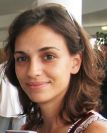
Susana Garrido Instituto Português do Mar e da Atmosfera, Portugal
Dr. Susana Garrido is a Senior Researcher of Marine Sciences at the Portuguese Institute for the Ocean and Atmosphere (IPMA). Her research has been mostly focused on the trophic ecology and biology of pelagic fish species, from larvae to adults, particularly small pelagics of the Western Iberian Upwelling ecosystem. She recently co-authored a comprehensive book chapter on the trophic ecology of sardine and anchovy species of the world. In her work she uses complementary techniques such as gut analysis, fatty acid biomarkers and stable isotopes to assess the feeding ecology of small pelagic fish, and laboratory experimentation to describe vital rates and foraging in relation to environmental factors. Additional research interests include zooplankton ecology and maternal effects.
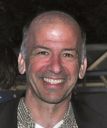
Jim Ianelli Alaska Fisheries Science Center, NMFS, NOAA, Seattle, WA, USA
Dr. Jim Ianelli has worked in fisheries research since the late 1970s beginning as a field biologist studying tuna biology and fisheries. He served as a research scientist with the South Pacific Commission located in New Caledonia, and later directed the construction of marine lab for the Inter-American Tropical Tuna Commission’s (IATTC) in Panama. He conducted independent tuna tagging experiments on juvenile bluefin tuna based in small fishing communities in Japan. In between these research activities he earned a BS from Humboldt State University and a PhD from the University of Washington in 1993. For the last 25 years, he has worked for the Alaska Fisheries Science Center’s stock assessment team responsible for producing analyses used for the management of important groundfish and crab species in the North Pacific. His research interests include developing statistical approaches for ecosystem/fisheries conservation management. He is an affiliate professor at the University of Washington. He chairs the North Pacific Fishery Management Council’s groundfish Plan Team and serves on the Advisory Panel for the Commission for the Conservation of Southern Bluefin Tuna. Since 2013 he has served as Chair of the Scientific Committee for the South Pacific Regional Fisheries Management Organization.
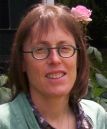
Verena Trenkel IFREMER, France
Dr. Verena Trenkel is a research scientist at the French Research Institute for the Exploitation of the Sea (Ifremer). After obtaining master degrees in marine biology and statistics she went on to do a PhD in red deer management modelling. After this terrestrial excursion Verena came back to the sea and for the last two decades has been working on abundance estimation methods as well as the use of statistical modelling and indicators for ecosystem assessments, population, community and socio-ecosystem studies. She has a long standing interest in traditional and alternative observation methods for abundance monitoring and behavioral studies.
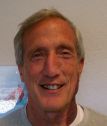
Roy Mendelssohn Pacific Fisheries Environmental Laboratory, NOAA/NMFS/SWFSC, USA
Dr. Roy Mendelssohn is a Supervisory Operations Research Analyst at the Environmental Research Division (ERD), Southwest Fisheries Science Center. For over thirty years he has researched climate change in the ocean and its effects on marine populations. For the last 20 years he has been leading a group at ERD that provides an array of environmental data to researchers, managers, and students through web services and web pages. He is either presently or has been a member of numerous groups developing data management and transport standards for NOAA, inter-governmental committees, and for the Open Geospatial Consortium.

Timothy Essington SAFS, University of Washington, USA
Dr. Tim Essington is Professor and Associate Director at the School of Aquatic and Fishery Sciences at the University of Washington. He is broadly interested in the interface between scientific understanding of ecological systems and applications to conservation and management. His recent research looks at fisheries policy tools and the conservation benefits they may provide. Of particular interest is the application of ecosystem approaches to fisheries management, as applied to fisheries targeting small forage fish, a species that play important roles in food webs. His lab conducts work in a wide range of marine ecosystems: from high seas pelagic systems to the inland seas of Puget Sound. They look at links between fishery governance (e.g. rights-based fishing) and ecological conditions, and attempt to understand the potential conflicts between fisheries as they target species that occupy distinct positions in food webs. He serves on multiple editorial boards and scientific advisory panels.

Geir Huse Institute of Marine Science, Norway
Dr. Geir Huse is Research Director for Marine Ecosystems and Resources at the Institute of Marine Research (IMR) in Bergen. He received his masters and PhD theses at the Institute of Fisheries and Marine Biology at the University of Bergen, and worked as a post doc there for four years before moving to IMR in 2003. Research interests: Dr. Huse has worked on marine ecological developing and utilizing individual based models, in particular novel adaptation based techniques to incorporate behavioural and life history decisions into individual based models using genetic algorithms and artificial neural networks. Spatial fish ecology has been another key interest area where he has worked on several problems related to horizontal distribution and migration in fishes both in relation to stock demography, predator-prey interactions and oceanographic processes. Recently he has worked on developing end to end ecosystem modelling and integrated ecosystem assessments.
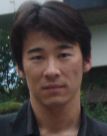
Akinori Takasuka National Research Institute of Fisheries Science, FRA, Japan
Dr. Akinori Takasuka currently works as the head of the Fisheries Ecology group at National Research Institute of Fisheries Science, Japan Fisheries Research and Education Agency (Yokohama, Japan) and an Affiliate Associate Professor of Tokyo University of Marine Science and Technology. He received BSc, MSc, and PhD in Agricultural Science from The University of Tokyo. He finished PhD work on growth and survival mechanism during early life history stages of anchovy in 2003. His interests have been directed to mechanisms of fish population dynamics. The current main study topics are biological mechanisms of species alternations (out-of-phase population oscillations between anchovy and sardine) in response to climate change, growth and survival mechanisms during early life stages, and spawning biology of small pelagic fish species. His recent activity includes international collaboration projects. In November 2015, he organized a symposium/workshop on “Growth–survival paradigm in early life stages of fish: controversy, synthesis, and multidisciplinary approach” with his Japanese and Canadian colleagues in Yokohama.
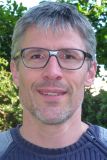
Martin Huret IFREMER, France
Dr. Martin Huret is a research scientist at the French Research Institute for the Exploitation of the Sea (Ifremer). He received his PhD in Biological Oceanography in 2005 on remote-sensing and modelling of primary production. After a postdoc at the University of Massachusetts on the modelling of larval cod transport in the Gulf of Maine, he has since been working in a fishery lab at Ifremer in Brest. His general interest is in the study of physical and biological interactions in marine systems with mechanistic modelling as a preferential tool. He is focusing now on sardine and anchovy of the Bay of Biscay and surrounding seas, for which he is developing life cycle models coupling IBM and bioenergetics (Dynamic Energy Budget) to study their recruitment and spatial dynamics. He is currently managing a national project to collect original data on fish energy to calibrate the model. He has been involved in several EU projects dealing with fisheries management and climate change effects on fish populations.
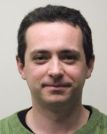
Jose A. Fernandes Plymouth Marine Laboratory, UK
Dr. Jose Fernandes main area of work is in fisheries and socio-economics modelling. He is an interdisciplinary scientist that integrates marine biodiversity, ecosystem functioning, ecosystem modelling, marine ecosystem services, and environmental economics to support policy, planning and management for sustainable marine ecosystems and improving society wellbeing. Recently his modelling work has focus on integrating experimental evidence in mechanistic models for forecasting of pelagic species distribution . His modelling work also focuses on statistical model for early forecasting with sparse data using probabilistic models to improve the forecast multiple species simultaneously with special focus on anchovy recruitment. He has large experience in multi-cultural and international projects from European projects (EURO-BASIN, VECTORS, DEVOTES, MYFISH and UKOA) to projects in Asian and African countries (ESPA-DELTA and DECCMA).
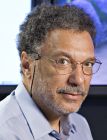
Daniel Pauly Institute for the Oceans and Fisheries, UBC, Canada
Dr. Daniel Pauly is a binational French and Canadian who completed his high school and university studies in Germany. After many years at the International Center for Living Aquatic Resources Management (ICLARM), in Manila, Philippines, Dr. Daniel Pauly became in 1994 a Professor at the Fisheries Centre (now Institute for the Oceans and Fisheries) at the University of British Columbia in Vancouver, Canada, of which he was the Director from 2003 to 2008. Since 1999, he is also Principal Investigator of the Sea Around Us, devoted to studying, documenting and mitigating the impact of industrial fishing on the world’s marine ecosystems (see www.seaaroundus.org).
The concepts, methods and software Daniel Pauly (co-)developed, documented in over 1000 heavily-cited publications, are used throughout the world, following multiple courses and workshops given in four languages on five continents. This applies especially to the ELEFAN software for fish growth analysis, the ECOPATH approach for modelling aquatic ecosystems, FishBase, the online encyclopedia of fishes and the catch reconstructions, catch maps and other products of the Sea Around Us.
This work is widely recognized, and thus Dr. Pauly is the recipient of multiple scientific awards and prizes, e.g., the Roger Revelle Medal (IOC/UNESCO), International Cosmos Prize, (Japan), Volvo Environment Prize, Ramon Margalef Prize (Calalonia), Grand Prix (French Ecological Society), Nierenberg Award for Science in the Public Interest (SIO, La Jolla) and Peter Benchley Ocean Award. Dr. Pauly is also the recipient of seven honorary doctorates from universities in Europe and Canada.
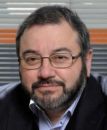
Renato Quinoñes University of Concepcion, Chile
Dr. Renato A. Quiñones is a full Professor at the Department of Oceanography of the University of Concepción (Chile) and the Director of the Interdisciplinary Center for Aquaculture Research (INCAR), a center of research excellence in science funded by the Chilean Government. He holds a B. Sc. in Marine Biology and the professional title of Marine Biologist from the University of Concepción. He earned his PhD in 1992 from Dalhousie University, Canada.
He has published 120 scientific articles and book chapters in the fields of biological oceanography, fisheries oceanography, marine biogeochemistry, ecology, and fisheries management. He has also co-edited books on marine biogeochemistry, applied ecology, and the impact of climate change on fisheries and aquaculture. His research interests include size structure of marine communities, effects of perturbations on ecological systems, developing ecosystem-based approaches to marine resources management, human dimensions of marine fisheries and aquaculture management, and the ocean carbon cycle and climate change. Since taking up his position at the University of Concepción in 1995 he has supervised 31 honours students, 17 M.Sc. and 18 Ph.D. students.
Dr. Quiñones is a member of the National Fisheries Council (Chile) and an official scientific advisor of the Ministry of Foreign Affairs of Chile. He has served as a member of the Scientific Steering Committee of the International Joint Global Ocean Flux Study (JGOFS) and the Council of Fisheries Research (Chile). He was a core member of the expert GLOBEC panel “Feedback from Marine Ecosystem Changes (FWG4)” and Chilean Representative to the Directorate of the Inter-American Institute for Global Change Research. He has been a member of several international working groups of experts (SCOR, JGOFS-LOICZ) and a co-principal investigator of the European Network of Excellence for Ocean Ecosystem Analysis. He has acted as a UNESCO consultant in the field of fisheries ecology.
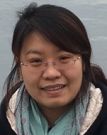
Jin Gao NOAA Northwest Fisheries Sciences Center / University of Washington, USA
Dr. Jin Gao is a postdoctoral researcher at the School of Aquatic and Fishery Sciences at the University of Washington and Northwest Fisheries Science Center in Seattle, Washington. She graduated from the Department of Ecology and Evolution at Stony Brook University in New York and completed previous postdoc work at the Institute of Oceanography at National Taiwan University in Taipei. She is interested in statistics and especially the applications in ecological and fishery data. She has done research in comparative studies using non-linear forecasting techniques and is developing new non-linear forecasting methods for spatial time series.

Nis Sand Jacobsen University of Washington School, USA
Dr. Nis Sand Jacobsen is a postdoctoral researcher at the School of Aquatic and Fishery Sciences at the University of Washington. He completed his Bsc at the University of Copenhagen and Masters as well as PhD degree at the Centre for Ocean Life, Technical University of University of Denmark (DTU Aqua). Dr Jacobsen is interested in how fisheries affect ecological interactions, and how indirect effects of fishing propagates through food webs. He investigates these issues using size and trait based multispecies models that can be used to quantify trade-offs between fishing and conservation. Recently, he has been working on the temporal changes in natural mortality and how it affects population dynamics of forage fish.
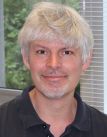
André E. Punt University of Washington, USA
André E. Punt is a Professor in the School of Aquatic and Fishery Sciences at the University Washington, Seattle, USA and the currently the Director of the School. He received his B.Sc, M.Sc and Ph.D. in Applied Mathematics at the University of Cape Town, South Africa. Before joining the University of Washington, Dr Punt was a Principal Research Scientist with the CSIRO Division of Marine and Atmospheric Research in Australia. Dr. Punt has been involved in stock assessment and fisheries management for over 30 years and has been recognized for his contributions in this area with awards from CSIRO, the University of Washington, the Australian Society for Fish Biology, and the American Fisheries Society. The research undertaken by Dr. Punt and the MPAM (Marine Population and Management) group at the University of Washington relates broadly to the development and application of fisheries stock assessment techniques, bioeconomic modelling, and the evaluation of the performance of stock assessment methods and harvest control rules using the Management Strategy Evaluation approach. Currently, projects that Dr. Punt is undertaking with his research group include ecosystem modelling, assessment and management methods for data-poor methods, and understanding the impact of climate change and environmental variation on the performance of assessment and management methods. Dr. Punt has conducted stock assessments for a wide range of species, ranging from anchovies and sardines, to groundfish, tunas, and cetaceans. Dr. Punt has published over 300 papers in the peer-reviewed literature, along with over 400 technical reports. He was a member of a National Research Council panel on evaluating the effectiveness of fish stock rebuilding in the United States. Dr Punt is currently a member of the Scientific and Statistical Committee of the Pacific Fishery Management Council, the advisory committee for Center for the Advancement of Population Assessment Methodology, the Crab Plan Team of the North Pacific Fishery Management Council, and the Scientific Committee of the International Whaling Commission.

